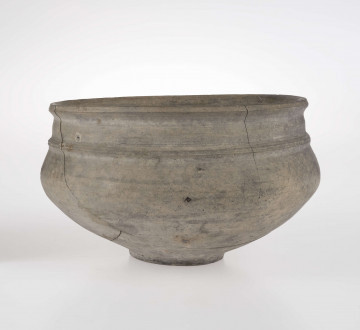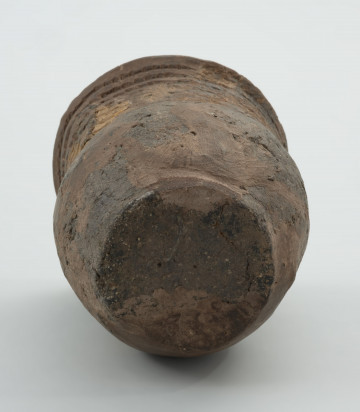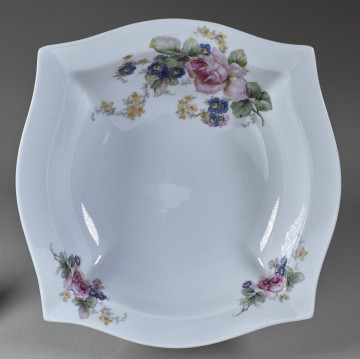
Vessel
280 — 300
National Museum in Lublin
Part of the collection: Material culture of West Pomerania
The Polish word for colander, durszlak, comes from a German verb durchschlagen, meaning “to sieve”. It refers to an everyday kitchen utensil resembling a perforated bowl or pot that was used for straining and rinsing food. Another word for that utensil in the Polish language is cedzak. Traditional clay colanders were made by potters. The process of making the finished product was quite long and consisted of several steps. At first, the potter would prepare the clay and form it into a lump, which he would then place on the head of the upper wheel. He would then set the wheel in motion and use his hands to form the desired vessel, which was then cut off from the wheel with a wire and left to dry. The dried vessel was then smoothed out, the bottom was shaped, the handles were attached, and the bottom holes were cut out with a knife or punched with a drill. Thus prepared, the colander was left to dry completely and then baked in a special pottery kiln. At the end of the 19th century, as a result of the rapid development of the industry which offered cheap mass-produced vessels, the pottery craft suffered a severe decline. Traditional clay colanders began to be replaced by enamelled sheet metal factory-made strainers. Contemporary colanders are made of different materials, most often from stainless steel or plastic. In the collection of the Department of Ethnography of Pomerania of the National Museum in Szczecin, there is a glazed clay colander with three loop handles, made in the mid-19th century in Western Pomerania.
Agnieszka Słowińska
Author / creator
Dimensions
cały obiekt: height: 15,2 cm
Object type
vessel (container)
Creation time / dating
Creation / finding place
Identification number
Location / status

280 — 300
National Museum in Lublin

National Museum in Szczecin

1. połowa XX wieku
Castle Museum in Łańcut
DISCOVER this TOPIC
Museum of King Jan III's Palace at Wilanów
DISCOVER this PATH
Educational path